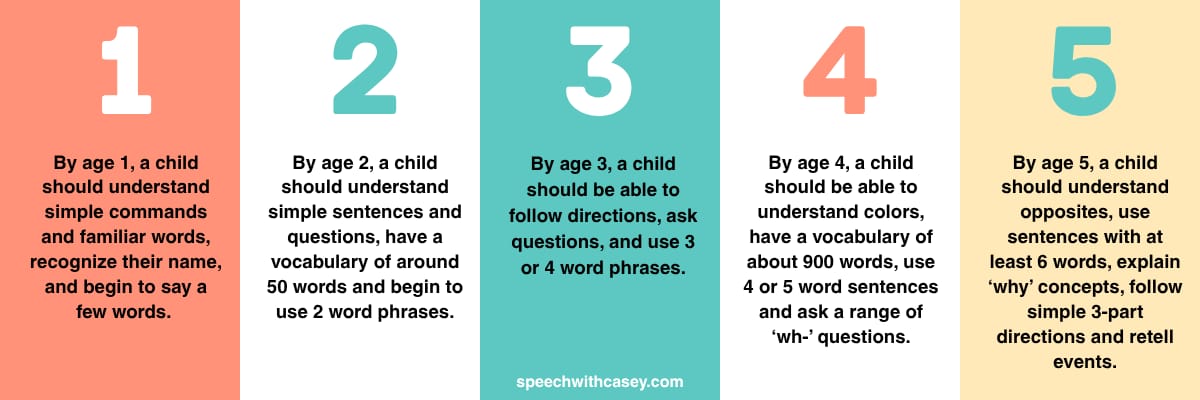Hi, everyone! I wanted to give you some tips to help you help your young kids expand their vocabulary. There are plenty of good, well-known tips out there (Example: Read every day to your child!), and I wanted to provide a few less-known tips for you to work with from the perspective of an SLP.
First, here’s a quick "Milestones" guide for you to screenshot, hang on your fridge, or just come back to you if you ever have that question, “Is my child on track?”

Remember that these are simply milestone guides, and if your kiddo is slightly “behind” on these, it doesn't necessarily mean that's cause for concern. But it's never too late to start working with them on increasing their language skills!
Now, jumping in 👇
Daily Ways to Help Your Toddler Expand Their Vocabulary
Your toddler doesn’t need flashcards or apps to build their vocabulary.
They need YOU showing up daily with simple habits that create language-rich moments.
As a pediatric speech therapist, here are the strategies I recommend to every parent:
1. Narrate Your Day
Turn daily routines into opportunities.
When you talk out loud while folding laundry, making breakfast, or changing diapers, you’re modeling functional vocabulary in context.
Say things like, “Shirt on. Big shirt! Blue shirt!” to give your toddler multiple word types (nouns, adjectives, actions) in a natural way.
Hearing more words generally helps toddlers learn more words.
Read my note at the end of this email if you ever feel exhausted by this habit.
2. Remember to Pause
Toddlers need time to respond, even if it seems to take forever.
After you ask a question or make a comment, pause and wait.
Count to five silently if you need to.
This encourages your child to take a turn and attempt to express themselves.
Don’t rush to fill the silence, work on waiting for them.
(Some of these habits are really for the parents, not the kids. 😉)
3. Don’t Forget to Add Variety
Repetition builds memory, but variety builds flexibility.
Instead of saying the same phrase over and over, tweak it:
“The dog is running.”
“The dog ran fast!”
“Look! A running dog!”
Use the same core word, but in different forms and contexts.
This helps your toddler generalize vocabulary into real-life scenarios.
4. Follow Their Lead
Your toddler is more likely to learn words they’re interested in.
If they’re fascinated by trucks, don’t correct them to talk about colors. Instead, dive into trucks: “dump truck, honk, load, big wheels!”
Interest is a significant driver of attention. That attention is going to help with learning.
5. Model, Don’t Quiz
Avoid asking constant “What’s this?” questions.
Instead, give them the vocabulary they don’t have yet.
If they say “dog,” you can model, “Yes! Big brown dog!”
They absorb more from being shown than from being tested.
You’re not testing them, you’re helping & guiding them.
A note about doing this sustainably over time:
If you're constantly correcting your child in an effort to expand their vocabulary and striving for perfection, it will be exhausting to you and your toddler. But, if you can be intentional about creating opportunities for language skill growth in your toddler's natural environment, you will slowly but surely help them build a lasting and robust vocabulary.
Every parent knows that months fly by. Reed and I feel this and have been shocked when our kids suddenly seem to take big leaps in their vocabulary after implementing some seemingly small changes.
Thanks for reading this email, I hope it was helpful. If you have any friends or family members raising young kids, I’d love it if you’d share this newsletter with them. Here’s a link to do so ⬇️
Sincerely,
Casey